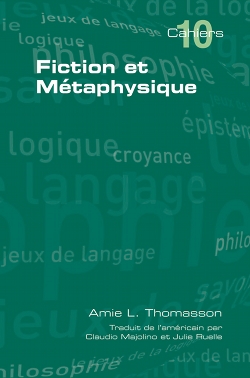 | Fiction et Métaphysique
Amie L. Thomasson. Translated by Claudio Majolino and Julie Ruelle
Les philosophes ont souvent traité de la fiction comme d'un problème collatéral, dont l'intérêt est limité à la logique et la philosophie du langage. Ce livre affirme en revanche que la fiction joue un rôle central en métaphysique. En développant une théorie « artefactuelle » de la fiction il aboutit ainsi à l'esquisse d'un nouveau système de catégories, « multidimensionnel ». L'on comprend ainsi que les personnages fictionnels sont des artefacts abstraits, des entités tout aussi ordinaires que les lois, les symphonies ou les œuvres littéraires : des entités dont l'existence dépend, d'un côté, des actes intentionnels humains (les actes créateurs d'au moins un auteur et les compétences linguistiques et culturelles d'une communauté de lecteurs) et, de l'autre, de l'existence de certaines entités spatio-temporels (des livres, des enregistrements etc.). Les conséquences métaphysiques d'une telle théorie sont importantes : l'identification d'un ensemble de catégories ontologiques de base, une meilleure compréhension de la différence entre vraie et fausse parcimonie ontologique et la formulation d'une base adéquate pour une ontologique du monde quotidien.
Philosophers have often treated fiction as a sideshow issue, whose interest is limited to logic and philosophy of language. By contrast, this book maintains that fiction plays a central role in metaphysics. Through an "artifactual" theory of fiction it leads to the sketch of a new "multidimensional" system of categories. Fictional characters are recognized as abstract artifacts, as ordinary as laws or symphonies or works of literature, i.e. entities whose existence depends on intentional human acts on the one hand (the creative acts of at least one author, and the linguistic and cultural competence of a community of readers) and on the other hand on the existence of some spatiotemporal particulars (such as books, records etc.). The metaphysical consequences of this theory are far reaching: the identification of a set of basic ontological categories, a better understanding of the difference between genuine and false ontological parsimony and the formulation of an adequate basis for an ontology of the everyday world.
17 September 2011
978-1-904987-98-7
|

